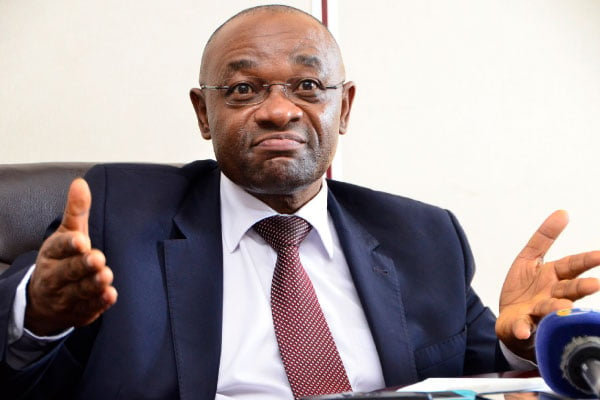Many districts are costly, do we get it?

The Minister for Local Government, Mr Raphael Magyezi. PHOTO/FILE
What you need to know:
The issue: New districts
Our view: If we cannot stick to the original dictates of decentralisation, then we just ought to restructure the governance system.
We reported in yesterday’s newspaper that the government has indefinitely suspended creation of new administrative units across the country.
The reason, according to the Minister of Local Government, Mr Raphael Magyezi, is that government was looking for money to run the recently created units.
There are a staggering new 364 sub-counties, 352 town councils and 10 cities, which are waiting for funding from government to operationalise.
What Mr Magyezi said implies two things. First, is that the government created the administrative units before establishing proper plans for revenue sources because close to one year later, the new units are struggling to come to life.
Second, is that creation of districts, cities, town councils, and sub-counties and so on is generally an expensive venture and needs careful thinking.
Let’s put this into context. The Ministry of Local Government makes a budget allocation of Shs1 billion as a start-up fund for each new district, and an additional Shs100 million to a new town council. This is exclusive of the need for political leadership at both local and Parliament levels, among others, further piling the wage bill burden on the taxpayer.
At Independence in 1962, Uganda had only 18 districts. When the National Resistance Movement came to power in 1986, that number was at 33. Today, we have 135 districts and more than 10 cities!
At the onset of decentralization in 1993, government envisioned under the Local Government Act that power was to be devolved to local authorities, which would foster political and administrative participation among the ordinary citizens and, therefore, help in improving service delivery and solving community needs.
However, over the years, the creation of new districts looks in all its features as gerrymandering. It is now being used as a political tool to propagate certain political interests other than service delivery.
The crux of the matter today is that despite the many administrative units, many areas still have challenges with service delivery. The roads remain poor, access to clean water remains elusive for many, and health services are wanting.
Worse still, many Ugandans are now exploiting the bonanza to blackmail government into giving them districts or town councils for exchange of political power. The result is exactly what Mr Magyezi says is happening – lack of money to operationalise new units.
If we cannot stick to the original dictates of decentralisation, then we just ought to restructure the governance system. We cannot afford the many districts, and it might take us longer to get out of the abyss occasioned by gerrymandering.
Our commitment to you
We pledge:
To be accurate and fair in all we do.
To be respectful to all in our pursuit of the truth.
To refuse to accept any compensation beyond that provided by Monitor Publications Ltd. for what we do in our news gathering and decision-making.
Further, we ask that we be informed whenever you feel that we have fallen short in our attempt to keep these commitments.




